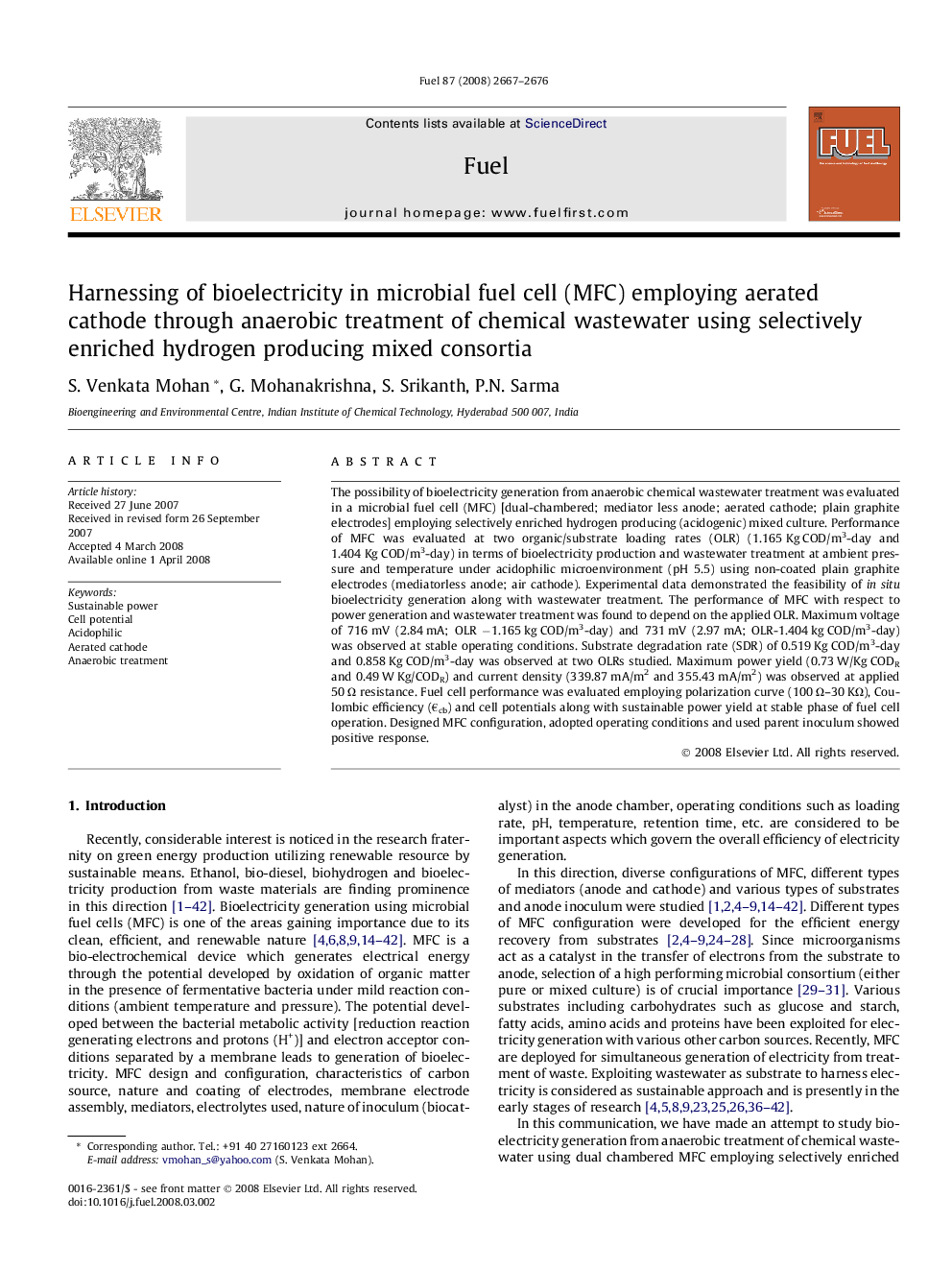| Article ID | Journal | Published Year | Pages | File Type |
|---|---|---|---|---|
| 207469 | Fuel | 2008 | 10 Pages |
The possibility of bioelectricity generation from anaerobic chemical wastewater treatment was evaluated in a microbial fuel cell (MFC) [dual-chambered; mediator less anode; aerated cathode; plain graphite electrodes] employing selectively enriched hydrogen producing (acidogenic) mixed culture. Performance of MFC was evaluated at two organic/substrate loading rates (OLR) (1.165 Kg COD/m3-day and 1.404 Kg COD/m3-day) in terms of bioelectricity production and wastewater treatment at ambient pressure and temperature under acidophilic microenvironment (pH 5.5) using non-coated plain graphite electrodes (mediatorless anode; air cathode). Experimental data demonstrated the feasibility of in situ bioelectricity generation along with wastewater treatment. The performance of MFC with respect to power generation and wastewater treatment was found to depend on the applied OLR. Maximum voltage of 716 mV (2.84 mA; OLR −1.165 kg COD/m3-day) and 731 mV (2.97 mA; OLR-1.404 kg COD/m3-day) was observed at stable operating conditions. Substrate degradation rate (SDR) of 0.519 Kg COD/m3-day and 0.858 Kg COD/m3-day was observed at two OLRs studied. Maximum power yield (0.73 W/Kg CODR and 0.49 W Kg/CODR) and current density (339.87 mA/m2 and 355.43 mA/m2) was observed at applied 50 Ω resistance. Fuel cell performance was evaluated employing polarization curve (100 Ω–30 KΩ), Coulombic efficiency (€cb) and cell potentials along with sustainable power yield at stable phase of fuel cell operation. Designed MFC configuration, adopted operating conditions and used parent inoculum showed positive response.
